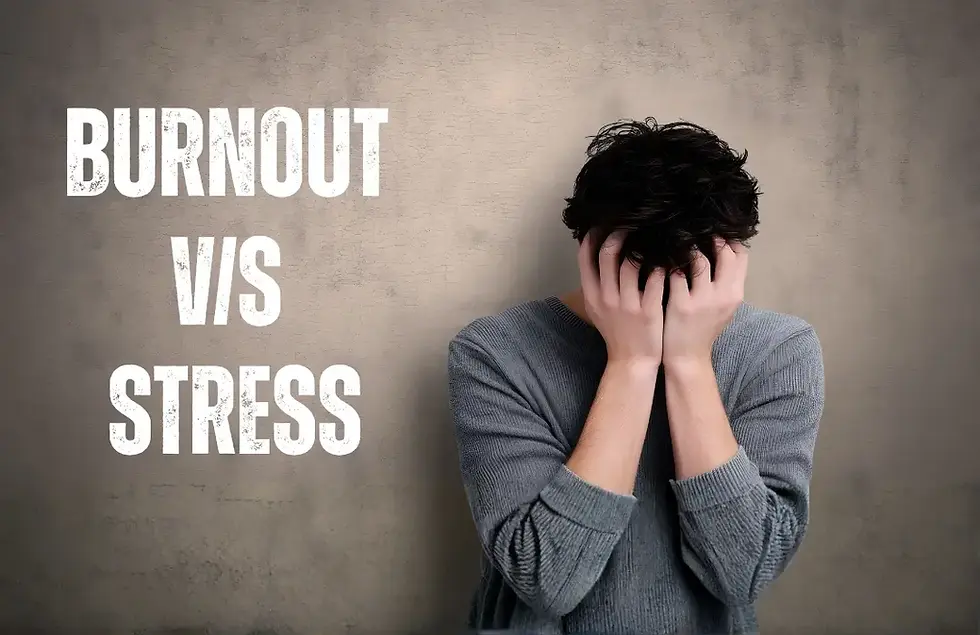What Is A Thought Disorder? Symptoms, Causes, And Treatment
- Mosaic Mental Health

- Jan 4, 2024
- 4 min read
Updated: Oct 3, 2025

A thought disorder is a disruption in a person's normal pattern of thinking that is seen in someone with mental health issues. It occurs when someone has difficulties with cognition, including difficulties speaking, the flow of a person's thoughts, difficulty focusing, and other symptoms.
Continue reading to understand overall thought disorders and how our mental health professionals efficiently address them.

What Exactly Are Thought Disorders?
The American Psychological Association (APA) defines a thought disorder as a "cognitive disturbance that affects communication, language, or thought content." It can affect cognitive functioning and interpersonal relationships. Common thought disorders that are known to alter an individual's thought process include schizophrenia and schizoaffective disorder. It can also occur in a variety of disorders.
Thought disorders are treatable; however, treatment must be personalized to the individual, considering their history and response to suggestions. Thought disorders are a serious mental health problem, which is why seeking professional assistance is critical. It's essential to get help from a skilled professional who can precisely evaluate the problems and prescribe the proper treatment approach.
Symptoms Of Thought Disorders
Thought disorder symptoms can seriously interfere with an individual's communication capacity, whether through writing or speaking.

A person suffering from a thinking disorder may exhibit several symptoms, including.
Reckless behavior
Extreme irritability
Monotonous voice
Separation from others
Poor judgment or insight
Disjointed mental process
Persecutory delusions
Delusions of grandiose delusions
Visual or auditory hallucinations
Poor eye contact or unfocused staring
Switching topics swiftly and ambiguously
Changes in movement that are noticeable
Difficulties concentrating or being easily distracted
Mood swings from being depressed to euphoric mood
Rambling, unconnected speech, also called incoherence
Increased substance abuse, including the use of drugs or alcohol
Rapid speech and cognitive process, even to the point of speech slurring
Remember that symptoms of a thinking disorder might manifest differently in each person, making the diagnosis a highly individualized approach.
Causes Of Thought Disorders
There is continuous research into why people develop thought disorders. Some evidence suggests a link between genetics, epilepsy, and brain anatomy may have a role in cognitive impairments.
Thought problems are prevalent symptoms of schizophrenia, a disorder caused by a variety of reasons. However, they are also seen in various psychotic and mood disorders, developmental difficulties, neurological concerns, and physical health problems.
Treatment For Thought Disorders
There is an effective treatment for thought problems. Both medications and therapy are effective treatments for thinking disorders. While therapy can be beneficial on its own, research shows that a combination of effective therapy and mental medication results in the most effective treatment.

Talk therapy may appear intimidating, especially if a person has difficulty communicating their issues and wants, but this does not mean there is no treatment or hope. Thought disorders can be treated separately or in combination with other disorders. In personalized treatment, a person's background, motivation, and response to suggestions must be considered.
Medication
Medication can help an individual's communication and stabilize their symptoms. Doctors, nurse practitioners (NP), and psychiatrists are among those who can administer mental health medications.
The most generally recommended drug to treat thought disorder symptoms is antipsychotics (first and second generation). Doctors frequently prescribe antipsychotic medicines to relieve symptoms. To treat mental disorders, they may also offer cognitive-behavioral treatment (CBT)
Therapy
Cognitive behavioral therapy (CBT), group therapy, supportive and reality-based therapy, and family therapy are all effective treatments for thinking disorders. Attending frequent therapy sessions helps someone to discover more about themselves.
Attending family therapy helps loved ones understand how thought problems affect someone. Mental illnesses such as schizophrenia and other mental disorders can be difficult to comprehend, leaving many family members and close friends unsure of how to assist. Family therapy can help learn effective ways to interact with and assist the person they care about.
Furthermore, it prepares individuals to successfully navigate some of the problems of thought disorders. Additionally, the inclusion of prescription drugs provides essential assistance to anyone suffering from a thinking problem.
Start Treatment For Thought Disorders At Mosaic Mental Health Today
Do you have a thought disorder, or do you know someone who does and is looking for effective therapy from mental health professionals? We can assist you whether you have recently gotten a diagnosis or want to know your options after trying various techniques to manage your mental health.
Along with therapy and medication, adopting wellness activities for adults can also play a significant role in improving overall mental health and supporting recovery.
Mosaic Mental Health is here to assist patients in understanding and managing their symptoms. We are here to help you express your thoughts and feelings to improve your well-being.
We are a boutique psychiatric clinic in Texas providing a full spectrum of psychiatric and mental health treatments to people in Texas, Colorado, Washington State, and Iowa. We offer telepsychiatry for the convenience of our patients and those concerned about their safety.
Among the issues we treat are mood disorders, ADHD, anxiety disorders, sleep-related problems, and thinking disorders. We now accept children ages six and up and provide same-day appointments; please contact us at 713 987-7828 or visit us at mosaicmentalhealthtx.com to learn more about our services and how we can support you on your journey towards a healthier you.

.png)



Comments